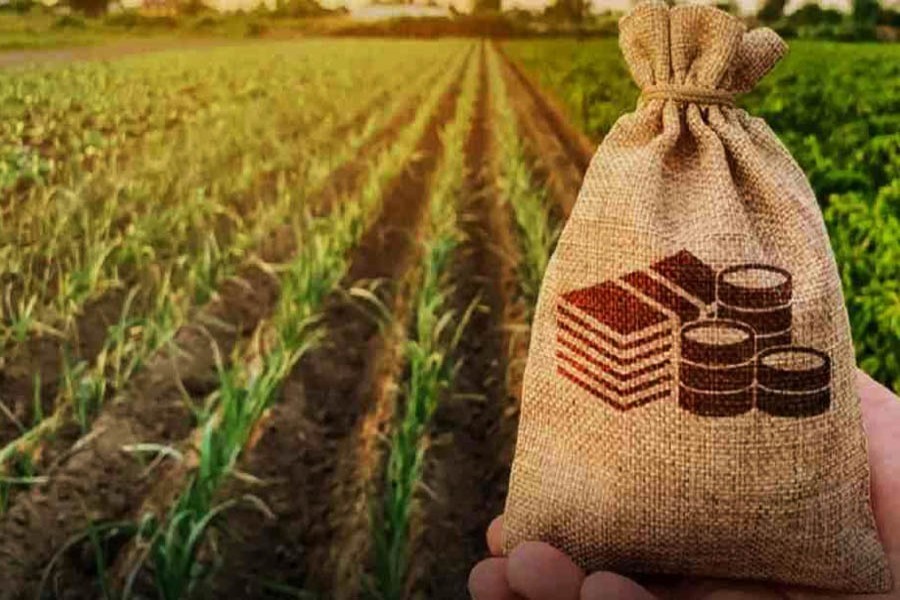With negative forecasts of global food security coming from different corners including the World Food Programme (WFP) of the UN, the humanitarian body that provides food to the hungry worldwide, there is reason for concern for Bangladesh with a very large population to feed. Even the UN secretary general, Antonio Guterres, at the G20 summit last month warned that 'this year's crisis of affordability may become next year's global food shortage'. Though the government has been assuring us of sufficient food stock in the country, there is still hardly any room for complacency. Against this backdrop, the efforts at increasing local food production should get the highest priority. As a corollary, the government would be required to renew its attention to the country's farmers.
In this context, the Bangladesh Bank (BB), is learnt to have taken a decision to increase its agricultural credit disbursement target. The increased volume of credit thus going to be channelled through banks is expected to include the small and share-croppers who are perennially at the receiving end in times of adversity. Indeed, the farming community has, of late, fallen on hard times, thanks to the recent drought, heat wave and other calamities resulting from climate change. The recent hike in prices of fertilizers and diesel has only made the situation worse for them. So, the BB's plan to channel more fund into the farming sector is obviously well timed. But the central bank would also be well-advised to take caution for the simple reason that the bank loans, though well-intentioned, often fall into wrong hands.
The factors responsible for bank credits not reaching the targeted beneficiaries are mostly a systemic issue with the banks themselves. The complicated procedure of obtaining bank loan often discourages the mostly unlettered, small and marginal farmers. As a result, they go to the non-government credit sources like the microfinance providers, who take the loans to their clients and not the other way around. On this score, the central bank's stance that its agricultural loans should be distributed through banks and not microfinance institutes is no doubt reasonable. But to ensure that the traditional bank credit is easily accessible to poor farmers in the countryside, the bankers will be required to do some extra work of increasing rapport with the prospective beneficiaries. In fact, personal contact of the microcredit loan operators with their clients is the secret of their credit scheme's success in the countryside.
So, while the formal credit through normal banking system should be made more poor farmer-friendly, arrangements should also be thought of, say , in the form of crop insurance, as a hedge against any natural or other kinds of calamity causing crop failure. So, the credit programme for the farming sector should be more than just a lending activity as usual. It should rather be an occasion for banks to stand by farmers in their hour of need with required financial support. In this connection, the good news is that that the BB has reportedly announced a refinancing scheme of Tk 50 billion as liquidity support to some 60 commercial banks so that they can increase credit flow to the farming sector. It is hoped, the central bank, at the same time, would also take all precautionary measures so that the money to be thus pumped through the banking channel may not go to further increase default loans, which have meanwhile reached humongous proportions.


